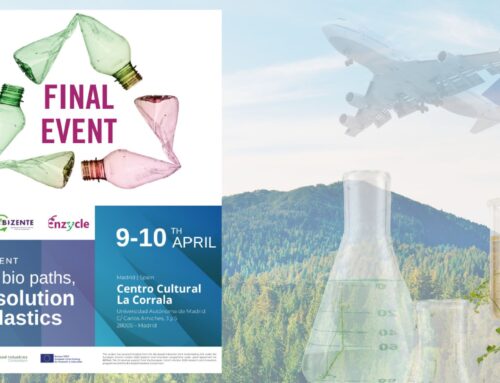
Frank Hollmann studied Chemistry (University of Bonn, Germany) and received his PhD from the Swiss Federal University of Technology (ETH Zurich) in 2004 with Andreas Schmid and Bernard Witholt as promotors. After a postdoctoral stay with Manfred Reetz (Max-Planck Institute for Coal Research, Germany) and some years as R&D manager at Evonik Industries (Essen, Germany). He joined the Biocatalysis group of the Department of Biotechnology at the Delft University of Technology (The Netherlands) in 2008.
The Biocatalysis group (BOC) in the Department of Biotechnology of the Delft University of Technology provides the basic chemical and biochemical characterization of the biocatalysts and the degradation products in BIZENTE. Frank Hollmann talks with us about the development of new model compounds to study how enzymes degrade the chemical bonds of plastics which is in line with the research focus of the group aiming at using biocatalysts for the synthesis of chemical products.
TU Delft leads the evaluation of customized enzymes on model compounds in liquid medium. Which process do you follow to do it?
We work hand in hand with our partner EvoEnzyme. They provide us with tailored enzymes which we then evaluate in our lab here in Delft. Even though the final aim is to degrade real polymers, we first focus on small model compounds which comprise the basic chemical characteristics of the real targets but that are much smaller in their size and therefore easier to analyse. In essences, we dissolve these model compounds in water and treat them with the tailored enzymes. Afterwards we used chemical analytical methods such as chromatography or NMR spectroscopy to understand if and how the model compounds have been modified.

In previous phases of BIZENTE, enzymes have been customized applying directed evolution strategies (by EVO) and resins have been modified chemically (by SP), how the low molecular weight model compounds investigated by TUDelft are related to the work performed by partners SP and EVO?
As I said before, we collaborate very intensively with partner EVO on new enzymes. Based on our results EVO adjusts their evolutionary strategy with the goal of attaining active and stable biocatalysts. We also try these enzymes on the ‘real substrates’ provided by SP. But honestly speaking, this is still a way to go until we can really degrade the ‘real thing’.
Do you think that the model compounds developed will have wider applications beyond the markets analysed in BIZENTE?
The model compounds themselves serve as models to make our daily work a bit easier. By themselves they are not applicable as polymers or functional materials. But this is also the fun part of science – you never know what a certain compound may be useful for. So we stay curious for what the future will bring.
How the work carried out in BIZENTE contributes to the research lines of the Biocatalysis group (BOC) of TU Delft?
We have been investigating the class of enzymes for several years now enjoying the academic excitement of playing around with new toys (enzymes). BIZENTE opens up an important application for ligninases to contribute to a more sustainable Europe. It is exciting being part of such a bold endeavor.
Do you consider BIZENTE a turning point in the recycling of thermoset composites?
The research done in BIZENTE still in large parts is of more fundamental nature. So it is difficult to predict if the polymer industry will be revolutionized in the next few years. In any case, we as consortium are putting the basis for this goal. We are learning every day a bit more and eventually will be able to degrade thermoset polymers and recycle the monomers for new products. Yes, in this respect BIZENTE is a turning point!





